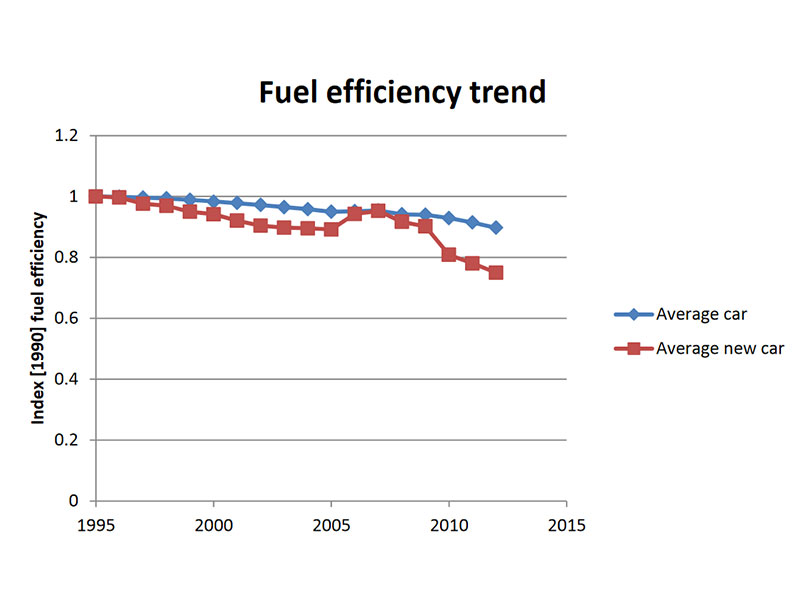NEUJOBS
09.55
From 2011 to 2015
NEUJOBS examined the impact of the socio-environmental transition on employment in Europe. TML studied the effects of this transition on the transport sector and analysed policy measures that led to a decrease in greenhouse gas emissions and relative job creation.
The aim of NEUJOBS is to chart the future of employment in Europe in the coming decades. The scientific framework is that of a socio-ecological transition: a drastic change in society's activities towards a more sustainable use of human skills and natural resources.
The NEUJOBS project coordinated the efforts of an interdisciplinary consortium with 29 partners in 23 work packages. TML was responsible for WP 15 on the impact of the socio-environmental transition on the transport sector. We studied trends in transport and employment. We also looked at the role of impacts in space (job location, commuting, and land use).
TML identified the following megatrends in transport:
After the proposed transport policies were introduced in EDIP among eight reference countries (Austria, Belgium, Spain, Finland, Bulgaria, Greece, and Poland), we showed that a combination of these policies leads to a 1% to 8% decrease in GHG emissions, mainly due to a halving of emissions from private transport. This was accompanied by a relatively limited increase in the number of jobs in all modelled countries.
Based on this transport policy, TML calculated job multipliers. We concluded that the results depend heavily on the economic development of the country, with the poorer southern and eastern European countries experiencing stronger relative job creation per million euros. This impact was mainly caused by the difference in wages and labour intensity within Europe. In addition, a relative increase in fuel efficiency was found to be up to three times less effective in job creation than increasing energy efficiency throughout the economy. Electrification was even found to have negative impacts in some countries.
Comparing a similar set of transport policies at the city level, we found that cycling policies, incentives for public transport, and promotion of energy efficiency best met the dual need to promote sustainable transport and create jobs. In addition, we recommend cities work on road pricing, parking fees, and/or low-emission zones to gain more control over traffic in the city. In addition, the revenues can be used to realise improvements in public transport or (where necessary) make social corrections in policies.
For more info, see the NEUJOBS website
The aim of NEUJOBS is to chart the future of employment in Europe in the coming decades. The scientific framework is that of a socio-ecological transition: a drastic change in society's activities towards a more sustainable use of human skills and natural resources.
The NEUJOBS project coordinated the efforts of an interdisciplinary consortium with 29 partners in 23 work packages. TML was responsible for WP 15 on the impact of the socio-environmental transition on the transport sector. We studied trends in transport and employment. We also looked at the role of impacts in space (job location, commuting, and land use).
TML identified the following megatrends in transport:
- High fuel efficiency and electrification.
- Switch from private transport to services.
- Changes in logistics chains (freight transport).
- Internalisation of external costs (pricing policies and road pricing).
After the proposed transport policies were introduced in EDIP among eight reference countries (Austria, Belgium, Spain, Finland, Bulgaria, Greece, and Poland), we showed that a combination of these policies leads to a 1% to 8% decrease in GHG emissions, mainly due to a halving of emissions from private transport. This was accompanied by a relatively limited increase in the number of jobs in all modelled countries.
Based on this transport policy, TML calculated job multipliers. We concluded that the results depend heavily on the economic development of the country, with the poorer southern and eastern European countries experiencing stronger relative job creation per million euros. This impact was mainly caused by the difference in wages and labour intensity within Europe. In addition, a relative increase in fuel efficiency was found to be up to three times less effective in job creation than increasing energy efficiency throughout the economy. Electrification was even found to have negative impacts in some countries.
Comparing a similar set of transport policies at the city level, we found that cycling policies, incentives for public transport, and promotion of energy efficiency best met the dual need to promote sustainable transport and create jobs. In addition, we recommend cities work on road pricing, parking fees, and/or low-emission zones to gain more control over traffic in the city. In addition, the revenues can be used to realise improvements in public transport or (where necessary) make social corrections in policies.
For more info, see the NEUJOBS website


